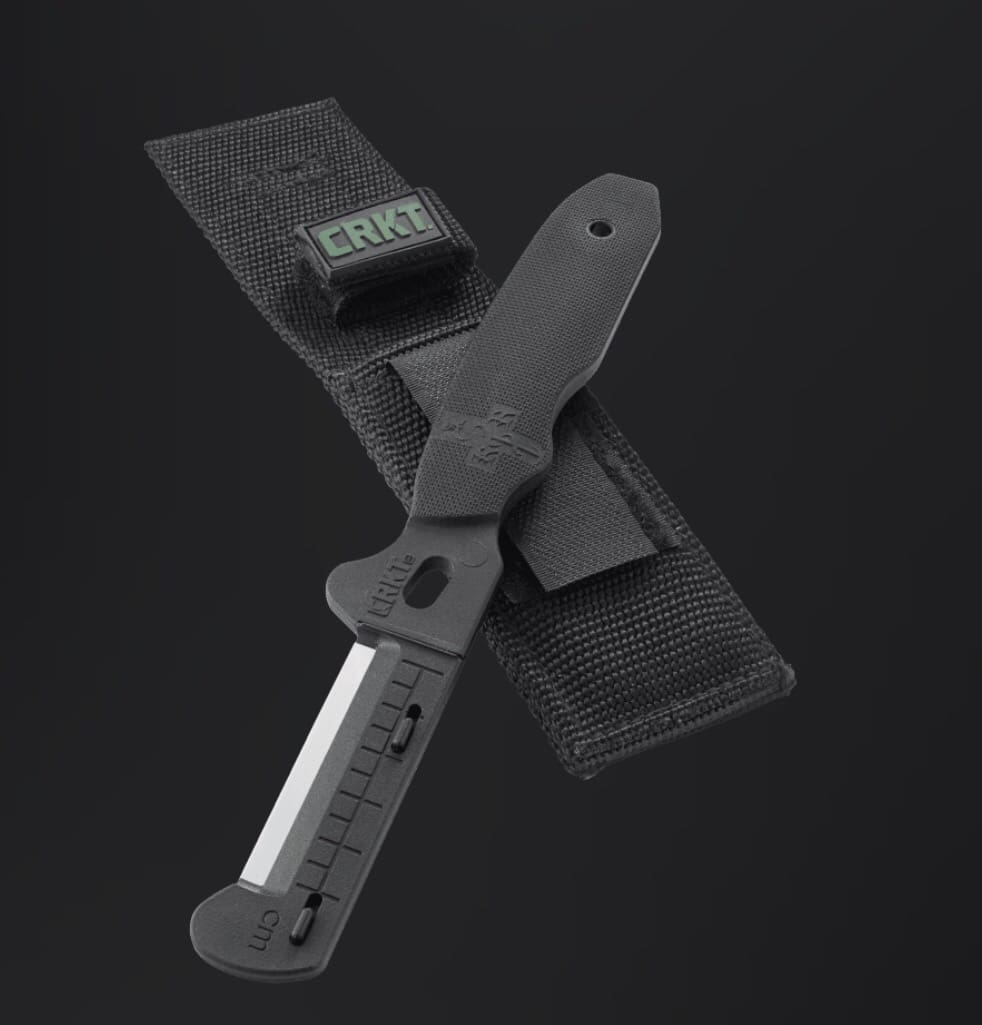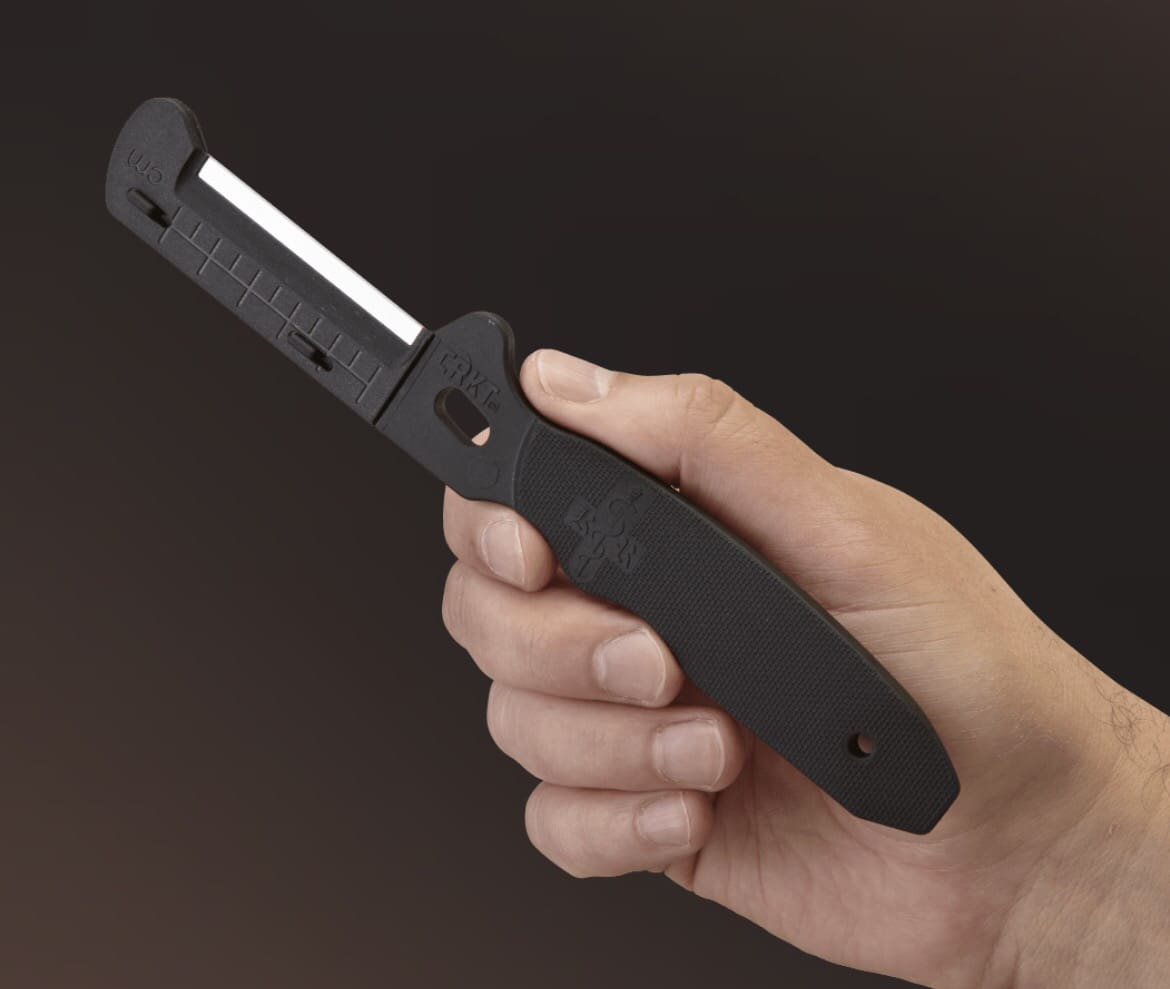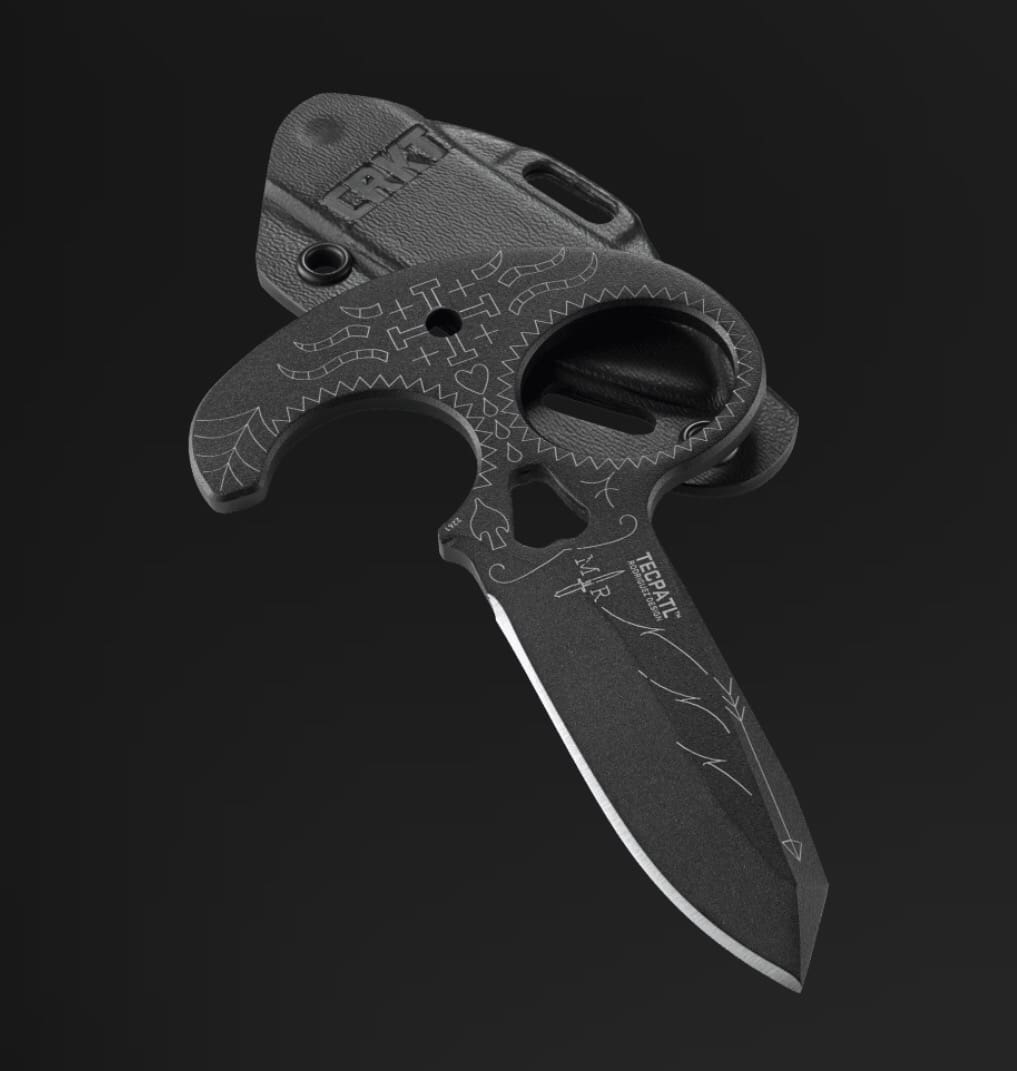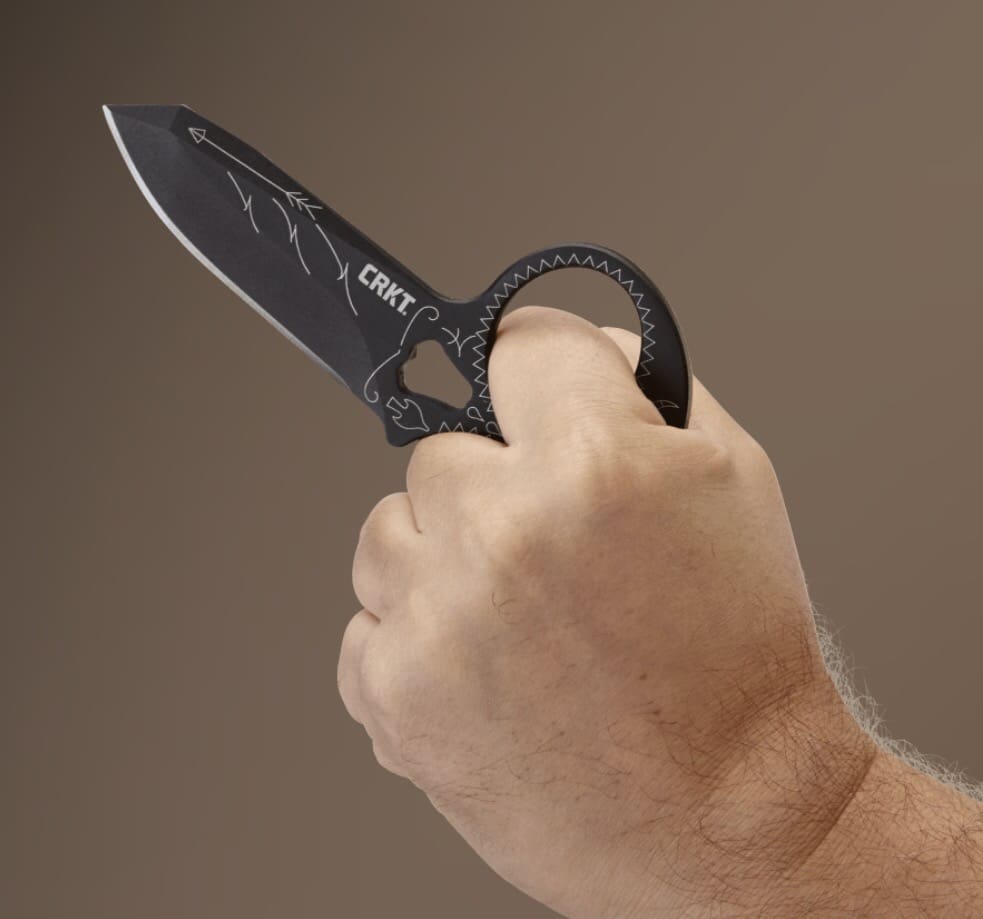Not only do Michael and Kelly Rodriguez currently have knife designs with CRKT but they are both Soldiers. Michael is a medically retired SF NCO and his wife Kelly is still serving as a Senior NCO at the 44th Med Bde. Incidentally, they’re also both great Americans and have great sons. One of them is also serving in the Army as a paratrooper in the 82nd. I’m very proud to call them friends and I’m also very proud of the work they are doing in the knife industry. Like I said earlier, both of them have designs under manufacture with CRKT as part of the Forged By War Program. Mutual friend Ryan M Johnson of RMJ Tactical taught Michael how to forge knives and worked with Team Rodriguez to get their designs to CRKT where he has a few designs as well. Recently, they shared their designs and told friends about CRKT’s Forged By War program’s donation to charities. It’s always cool to hear the background story behind a product and they are sharing that with us now.
I can’t believe the day has finally come! About two years ago, on the way home from Blade Show in Atlanta, Michael asked me a question that he had once been asked by Ryan M Johnson. “Is there a tool or knife you wish you would have had when you were down range?” In fact, there was, and so I started thinking and putting those thoughts on paper. The Combat Stripping Tool was born. I was blessed that CRKT included me and my design in their Forged By War program.
I’ve always hated traditional trauma shears. Don’t get me wrong, they work, and for some things, they are the best tool out there. But for me and for most as my 18D husband agrees, I normally used them to strip clothes off of patients. And for that I thought there had to be a better way. Once shears get dirty with mud, blood, dirt or oxidation, they become difficult to open and close, and I know I’ve gotten a few hand cramps from some mascal (mass casualty) situations that I’ve been in. So I wanted to design a tool that was easy to use, easy to keep sharp, and didn’t take up to much space.
The CST does just that. It has an exaggerated bull-nose and thumb guard to prevent injuries to yourself or your patient. It has a textured grip to prevent slipping, a built in oxygen wrench, and a centimeter scale to verify tube placements or wound size. It’s also easily cleaned.
There will be a great video coming out soon that demonstrates how well it works. I admit that I was pretty amazed at how fast it strips uniforms off! I’ll share it when it’s out.
I’ve chosen Operation One Voice to receive 10% off all profits from the CST. Please check them out! They are a great organization that has helped my family a great deal.
Features:
Utility Blade for Cutting Fabric During Emergency Situations
Oxygen Wrench
Built In Measuring Scale
Specs
Blade Length 2.125″ (53.98 mm)
Blade Edge Plain
Blade Steel Feather Safety Razor Blade; SS, HRC 56-63
Blade Finish Satin
Blade Thickness 0.005″ (0.13 mm)
Weight 1.5 oz
Handle Glass Reinforced Nylon
Style Fixed Blade Knife w/Sheath
Sheath Feature Replacement Blade Included In Woven Polyester MOLLE Gear Compatible Sheath
Sheath Material Weaved Polyester; Black
Overall Length 8.0″ (203.2 mm)
This is the first official look at my design and a project from over 3 years ago. I gave a sneak peak last year . Meet my “Tecpatl”. I was asked by a good friend of mine (Ryan M. Johnson) if there was ever a knife I wished I had during my deployments that didn’t exist. I knew there was, I had always carried a push knife that was lightweight, easily deployable, didn’t take a lot of space on my kit, many different mounting options and had one purpose, to create space between me and a target so I could get to my secondary, support arrived or situation changed.
My only issue was that I could not operate my weapon without dropping the push knife. There are several knives that are called “Fighting Knives” which are very effective, but without spending countless hours of training they just look cool, are extra weight and take up space on your “lightweight” kit. All Combat leaders know training time is precious and should be prioritized. Rex Applegate understood this and I urge you to read his manuals not just on his techniques but his philosophy. I discussed at length with another great friend of mine (Bill Harsey) who worked with and knew Rex very well about my design. There were very few to zero flying knife attacks with a blade flashing back and forth as portrayed in movies, Rex referred to them who practiced this as the “Flowing Robe Boys” yes that is an actual quote. Combat has evolved, there is a reason we don’t charge into battle carrying a sword, battle axe and crossbow under a hail of arrows today. I do believe however Combatives or hand to hand should always be part of your training regimen. Knife fighting is an art, just like gun fighting, both are a beautiful art that require a lot of training. If you can afford the knife fighting training great, but if you find yourself in a situation where you need to wield a knife in combat I pray your well prepared. If you’ve ever been there, you know what I’m talking about, you rely on your training and instinct.
I wanted a knife that monopolized more than instinct, but your anatomy and physiology. Everyone can throw a punch (some better than others), its part of the fight instinct we are born with, not to mention the greatest transference of force is generated with a punch in line with a blade in a small space. A straight punch or downward slash with your wrist locked in its anatomical position uses the largest muscle groups in our upper body and if your trained in combatives or fighting your much more effective because you are trained on how to use your whole body in those movements. Your reach is increased because you are not forced to focus the cutting edge of a hand held conventional knife and guess where it will reach its intended target. Just picture it in your mind. This knife is an extension of your fist, your own body. The knife edge and point are always pointed forward towards the target (sound familiar?), mag changes with weapon and blade in hand present no danger of self inflicted wounds unlike other knives. The handle rests solidly in your palm giving the knife a stable foundation during use, but not too bulky which drastically changes the feel of gun in hand. The profile of the blade was designed utilizing several historic combat proven bayonets and the subsequent body movements necessary for their employment.
After I sketched it, Ryan Johnson noticed if you turned the blade upside down it resembled a skull, the resemblance is a complete after thought which I think is pretty cool. All I had to do was add a nose. So utilizing my culture I sketched up a version using Mexican Sugar Skull Art, with a mixture of warrior culture symbols. Which is what our Warriors are today, the evolution of Warrior Cultures from around the world and times past.
10% of total profits will be donated to the Special Operations Care Fund and the George W. Bush Institute, visit their websites and see how else you can contribute.
I want the thank Columbia River Knife and Tool (CRKT) for taking this “Forged by War” project on and working on bringing Civilians and Military together. We are all American Citizens… De Oppresso Liber
Features:
Black Powder Coat with Sugar Skull Laser Marking
Multiple Hand Deployment Options
Kydex® Sheath with Spring Loaded MOLLE Compatible Gear Clip
Specs:
SPECIFICATIONS
Blade Length 3.375″ (85.73 mm)
Blade Edge Plain
Blade Steel SK5 Carbon Steel, HRC 53-55
Blade Finish Black Powder Coat
Blade Thickness 0.203″ (5.16 mm)
Weight 5.6 oz
Handle Stainless Steel
Style Fixed Blade Knife w/Sheath
Sheath Material Kydex; Black
Overall Length 5.813″ (147.65 mm)

















































































































